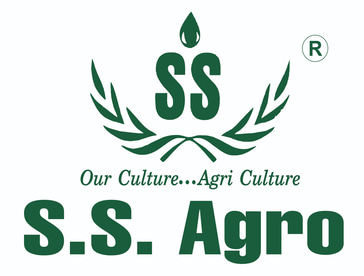Exploring Different Irrigation Solutions for Effective Crop Management
11/19/20242 min read


Introduction to Irrigation Solutions
Effective crop management is integral to agricultural productivity, and the implementation of appropriate irrigation solutions plays a crucial role. With varying climatic conditions and soil types, farmers must consider various factors when choosing an irrigation method. This article explores different irrigation solutions that can significantly enhance crop yield and sustainability.
Types of Irrigation Solutions
Several irrigation solutions are available to farmers, each with its unique advantages and challenges. Below are some of the most commonly used methods:
- Drip Irrigation: This method involves a network of tubes that deliver water directly to the plant roots in precise amounts, reducing water wastage. Drip irrigation is highly effective for row crops and orchards, ensuring consistent moisture levels.
- Sprinkler Systems: Sprinklers simulate natural rainfall by distributing water through a system of pipes and pumps. This solution is versatile and can be used for various crop types, but it may require more energy compared to other methods.
- Subsurface Irrigation: This solution buries drip lines beneath the soil surface, delivering water directly to the root zone. Subsurface irrigation minimizes evaporation and runoff, making it particularly suitable for arid areas.
- Flood Irrigation: A traditional method where fields are flooded with water. While it requires less technology and investment, it can lead to water wastage and is less efficient in water usage compared to other solutions.
- Rainwater Harvesting: This innovative approach collects and stores rainwater for irrigation use. It helps reduce dependence on conventional water sources and can be combined with other irrigation systems for maximum efficiency.
Benefits of Implementing Effective Irrigation Solutions
Adopting appropriate irrigation solutions brings several benefits to agricultural practices:
- Improved Water Management: Efficient irrigation systems help conserve water resources, crucial in regions suffering from water scarcity. By applying water directly where it is needed, farmers can ensure crops receive adequate moisture without unnecessary waste.
- Enhanced Crop Yields: Accurate irrigation methods contribute to growing healthy crops by maintaining optimal moisture levels. This leads to increased productivity and better-quality produce.
- Environmental Sustainability: Modern irrigation techniques reduce runoff and soil erosion, promoting a healthier ecosystem. By utilizing sustainable water sources and minimizing water pollution, farmers can manage their land responsibly.
Conclusion
In conclusion, selecting the most effective irrigation solution is vital for enhancing crop management and agricultural sustainability. Factors such as regional climate, crop type, and available resources will influence this choice. By exploring various irrigation options, farmers can ensure higher yields, better water conservation, and overall improved farm efficiency.
